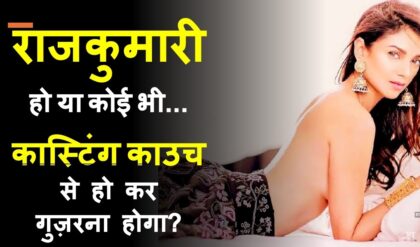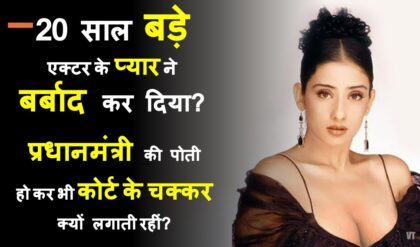In recent days, the Indian entertainment industry has been buzzing with various headlines that have captured the attention of audiences across social media and news platforms. From potential controversies surrounding Kangana Ranaut’s upcoming film to unexpected social media trends involving prominent celebrities like Shraddha Kapoor and Vicky Kaushal, the landscape of Bollywood seems to be ever-evolving. Here’s a look at the top stories making waves in the industry.
Kangana Ranaut, known for her outspoken nature and strong political views, is once again at the center of controversy with her upcoming film. Reports have emerged suggesting that the film may face a ban due to its politically charged content. The film, which delves into themes of nationalism and political narratives, has raised eyebrows among certain groups who believe it may incite unrest or propagate divisive ideologies. As the release date approaches, there is growing speculation about whether the film will receive the green light from authorities or if it will be shelved altogether. This situation highlights the ongoing tension between artistic expression and political sensitivities in India, a topic that continues to spark debates among filmmakers, politicians, and the general public.
Meanwhile, in a surprising turn of events, actress Shraddha Kapoor has been trending on social media for reasons that have little to do with her film career. In an unexpected move, a hashtag emerged that humorously claimed she “beats PM Modi” in terms of popularity, leading to a wave of memes and fanfare. This playful banter reflects the way social media can elevate a celebrity’s image, often in humorous contexts that may have no basis in reality. Fans have been engaging in light-hearted discussions, showcasing their love for Shraddha while poking fun at political figures. This phenomenon underscores the power of social media in shaping public perception and the dynamics of celebrity culture in contemporary India.
In another heartwarming development, actor Vicky Kaushal has captured the hearts of netizens with his genuine interactions and down-to-earth personality. His recent social media posts, showcasing candid moments from his daily life and interactions with fans, have resonated with audiences. Vicky’s approachability and charm have led to a surge of love and appreciation from fans, positioning him as one of the most relatable actors in the industry. In a time where many celebrities often seem distant from their fans, Vicky’s authenticity serves as a refreshing reminder of the importance of connection and humility in the world of entertainment.
Amidst these personal stories, the film industry is also grappling with the ongoing challenges posed by the pandemic. The effects of COVID-19 have been profound, leading to shifts in how films are produced, marketed, and released. Many filmmakers have had to adapt to new norms, including digital releases and hybrid models that combine theatrical and streaming platforms. As audiences continue to embrace online content, traditional box office models are being reevaluated. This transformation has prompted discussions about the future of cinema in India, with many speculating on how the industry will evolve in the coming years.
In addition to the ongoing changes brought about by the pandemic, the film industry is also witnessing a resurgence of interest in regional cinema. Films from various regional languages are gaining recognition not only within India but also on international platforms. This trend has opened up new avenues for storytelling and has allowed diverse narratives to find an audience beyond their traditional boundaries. As more filmmakers explore regional themes and collaborate with artists across different languages, the Indian film landscape is becoming richer and more varied.
The topic of representation in films has also taken center stage, with filmmakers being urged to create more inclusive stories that reflect the diversity of Indian society. This call for representation has led to discussions around casting choices, character development, and the need for authentic storytelling. As audiences become more discerning, they are demanding narratives that resonate with their experiences and reflect the multifaceted nature of Indian culture. This shift is prompting filmmakers to rethink their approaches and consider the broader implications of their work.
As the entertainment industry navigates these currents, the role of content creators and influencers has also evolved. With the rise of platforms like Instagram and TikTok, many young creators are using social media to showcase their talents and connect with audiences. This democratization of content creation has led to a flourishing of diverse voices and perspectives, challenging traditional norms of celebrity and influence. As these creators gain momentum, they are reshaping the landscape of entertainment and establishing new pathways for success.
In the midst of these developments, audiences remain at the heart of the conversation. Viewers are increasingly engaged and vocal about their preferences, driving trends and shaping the narratives that dominate popular culture. The rise of online petitions and campaigns demonstrates the power of audience sentiment in influencing the direction of films and television shows. This dynamic relationship between creators and consumers is changing the way content is produced and consumed, leading to a more interactive and participatory culture.
As the industry continues to evolve, the challenges of censorship and creative freedom remain pertinent. The debate around artistic expression versus societal norms is ongoing, with filmmakers often facing scrutiny for their work. The potential ban on Kangana Ranaut’s film is a reminder of the delicate balance that
Watch video:





